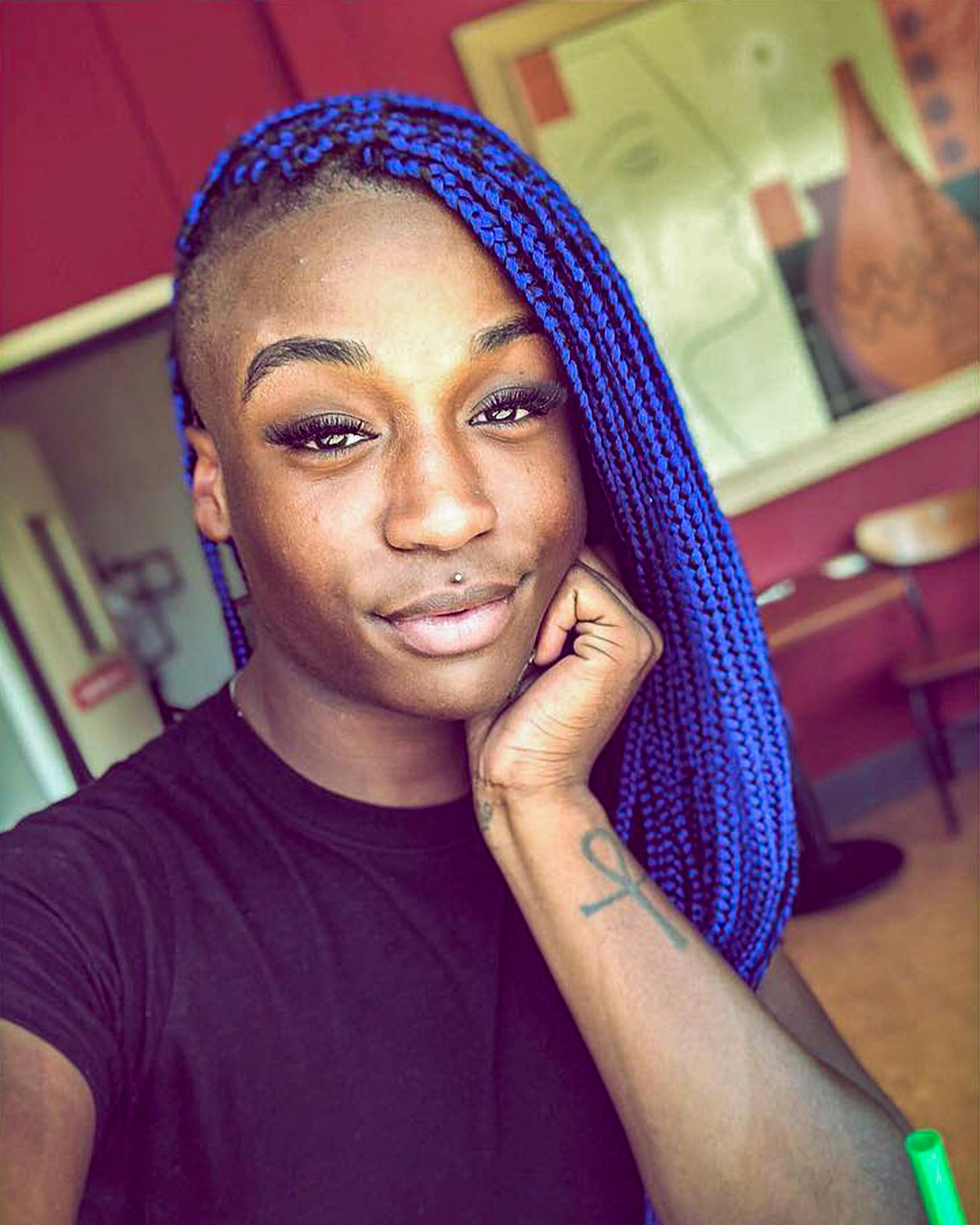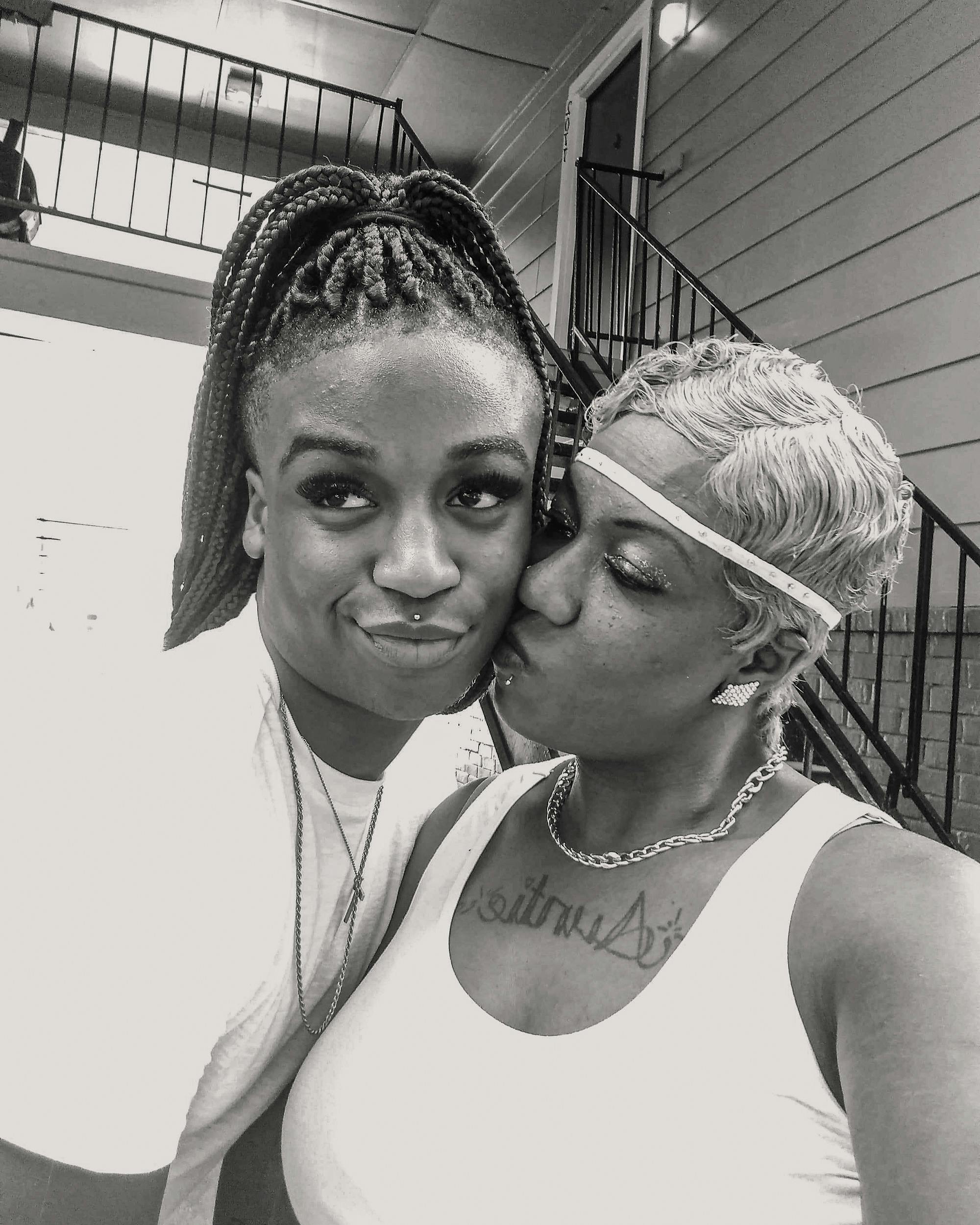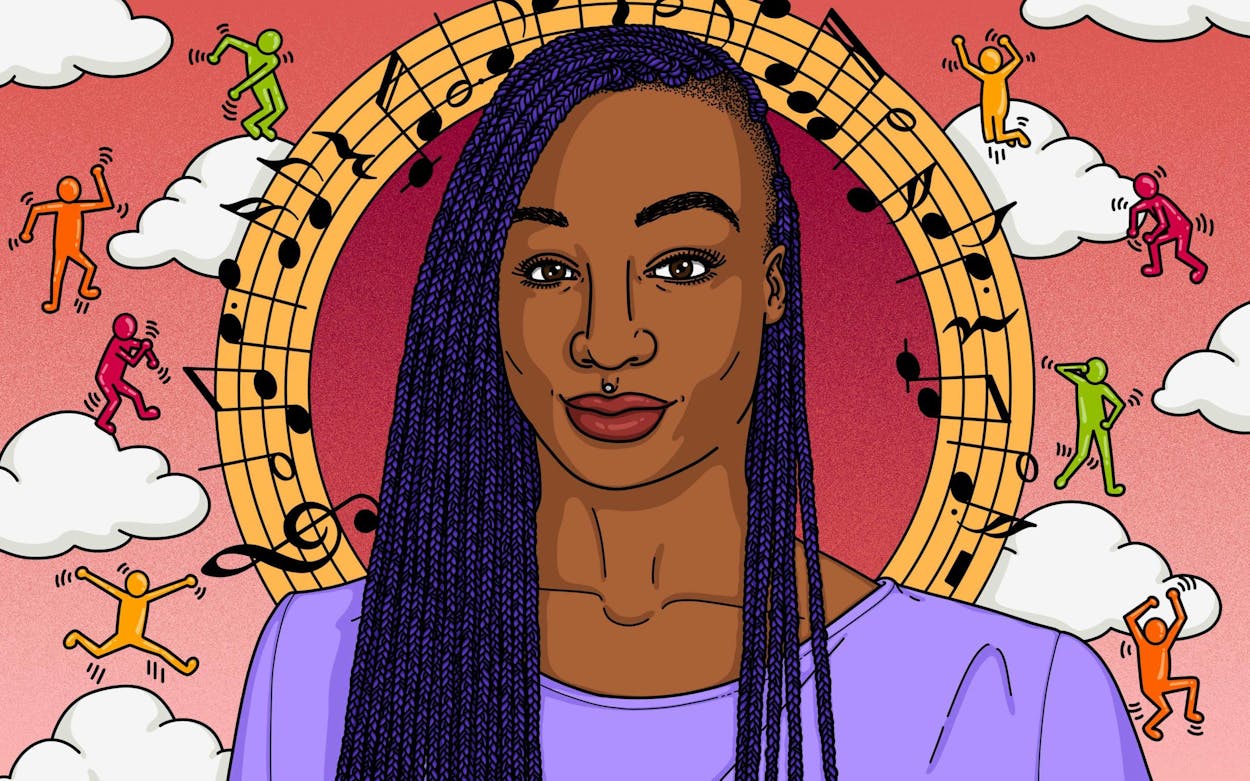Michelle Rickett lives a short walk from the Dallas parking lot where her daughter took her last breath. Some days, she visits the spot where paramedics found her “special baby,” Merci Mack, or waits for her to walk through the front door late at night with a bag of Luby’s takeout in tow. “I’ll just sit there and wait for the door to open,” Rickett says.
But when Mack doesn’t arrive, and Rickett is left sitting alone in a sparsely furnished living room, the 46-year-old pulls out her phone. She scrolls through videos of her daughter, her middle child, singing songs by Rihanna or Anita Baker. Wherever she went, Mack seemed to bring excitement and energy, and that’s one of the things Rickett misses the most: the music, the laughter, the chaos.
Mother and daughter lived together in the Stone Crest apartments in Oak Cliff, a fifteen-minute drive from downtown Dallas. Around 6 a.m. on Tuesday, June 30, a passerby saw Mack unconscious in the complex’s parking lot. Moments after paramedics arrived, they declared the 22-year-old dead from a gunshot wound in the head. She had just started living the life she wanted as a trans woman.
At a vigil on a humid July evening two weeks after the murder, Rickett, who has a mirthful laugh to match her daughter’s, met supporters eager to honor Merci Mack in the parking lot. She painted her fingernails with trans pride flags before joining the service where friends, family, and activists offered eulogies and poetry, and played the rhythmic blues music Mack had loved. Chanice Condren, a founding member of the Dallas chapter for the Black youth activist organization BYP100, presented a bundle of flowers to Rickett. They hugged, and Mack’s mother said a quick “thank you” to the crowd, then walked away from the mic, her daugher Tyeshia holding her the whole way.
“When we go to these vigils for Black trans people that have been taken from us, there’s not usually a lot of blood relatives; it’s their chosen family,” Condren says. “This time, it was Merci’s aunt and stepdad and coworkers. And her mom, who has so much love for who Merci was.”
For Rickett, the first weeks after her daughter’s murder were filled with loneliness. She had lost a friend whom she was, in many ways, just getting to know. Then activists started visiting the apartment at Stone Crest. At first it was just Condren and a couple of others. But they brought friends, who brought food and music.
Catalyzed by Mack’s death and what experts identify as an ongoing epidemic of trans murders in the United States that disproportionately affects Black women, activists in the Dallas trans community and their allies are trying to reach more women and let them know about the resources available in the city. These organizers want both to prevent future violence and to care for the families left in its wake.

The middle of five children, Merci Mack grew up singing and dancing, often with a T-shirt draped over her head to imitate long hair. She would entertain her brother and three sisters in their Dallas home by belting out songs by Mariah Carey, even if her talent didn’t match her passion. “She could not dance at all,” says Rickett. “But that didn’t matter to her.”
Merci retained that love of R&B, and years later, the same songs she used to sing were usually flowing from her car’s speakers when she pulled into her sister’s driveway. The loving aunt would playfully shout at her nieces to get in her silver Chevy Cruze with a pink steering wheel. She’d come bearing gifts, usually some lip gloss, and offer to drive the children for ice cream.
When Mack started to live life as a trans woman, her family supported her: “No one judged her,” says Rickett. “We loved her as she was. The craziness, we loved it. The arguments, we loved it.”
A week after Mack’s death, police officers arrested and charged her middle school classmate Angelo Walker with murder. Walker’s court date has been delayed several times, and he has yet to plead.
At the time of her death, Mack was at least the nineteenth transgender or gender-nonconforming American to be murdered in 2020. By year end, at least 44 trans Americans, 22 of whom were Black, had been killed, a significant uptick from 2019, when 25 trans people were killed, and 2018, when 22 were. A 2019 report by the Human Rights Campaign found 157 transgender or gender-nonconforming Americans were murdered between 2013 and 2018, but since trans victims are often misgendered and misnamed upon their deaths—as Mack was—the report’s authors estimate that the number is much higher.
Ten percent of those murders have occurred in Texas, which is home to 9 percent of the U.S. population. Here, the state Legislature has repeatedly blocked bills that would include gender identity as a protected class in its hate-crimes laws. Trans Texans also are not protected from housing, health-care, and employment discrimination. The HRC report finds that lack of employment and affordable housing lead to high rates of homelessness and poverty, which, in turn, make trans Texans more susceptible to violent crime.
In June, the U.S. Supreme Court issued a 6–3 decision prohibiting employment discrimination on the basis of sexual orientation or gender identity. Buoyed by that ruling, state representative Jessica González, a Democrat from Dallas, plans to introduce a bill that would make employment discrimination a violation of Texas law as well—allowing trans Texans the ability to file employment suits in state court—and give LGBT Texans equal access to housing and public accommodations. She said she has secured support from multiple representatives across the aisle: one, Republican Todd Hunter of Corpus Christi, confirms that although he has not seen a specific bill, he backs the efforts. But González expects pushback from the conservative Texas Freedom Caucus, which signaled after the Supreme Court’s ruling that it will push “religious freedom” legislation in the 2021 session.
Some conservative lawmakers have fought for years to give Texas schools and physicians the right to refuse service or care to LGBT Texans, holding that no one should be forced to serve someone (be it at a restaurant or a doctor’s office) if that person’s identity or sexuality interferes with their religious beliefs. Now, Representative Steve Toth, a member of the Texas Freedom Caucus from the Woodlands, has introduced a bill that would define the prescribing of estrogen or testosterone to anyone under age eighteen as “child abuse.” Procedures such as mastectomies for youths would also fall under that definition.
Rickett says she hasn’t been following the news surrounding the proposed bills, but she wants some kind of state action to deter violence and discrimination against trans Texans. “Something has to change,” Rickett says. “This can’t go on.”
Many trans activists in Dallas believe large-scale relief from the Legislature or local governments won’t come and have taken to providing essential services themselves. Shannon Walker, a Black trans woman and the founder of the nonprofit Nu Trans Movement, which partners with local clinics and physicians to care for transgender and non-binary people and assists with gender marker changes, says few people outside of the trans community are willing to help. “With fund-raising and grant writing, I haven’t been successful in four years. With city council, it’s like pulling teeth. Even when it comes to vigils, we gotta ask people for money on Facebook. We’ve had to pay for cremation for four or five girls. It really is all on us.”

In April 2019, Muhlaysia Booker, a Black trans woman, survived a brutal, caught-on-video attack by a mob. The incident grabbed headlines and inspired condemnations from Dallas’s mayor and police chief, both of whom made overtures about protecting the city’s trans citizens. A month later, Booker was shot and killed by a man who was not involved in the April attack.
The trans community was wracked with grief. Here was a woman who was clearly endangered, and many in the city knew it. If she can be killed, so can I, many thought. In a series of town halls that summer, Niecee X, a nonbinary activist, and fellow organizers confronted that fear head-on. They listened to women’s concerns and anxieties. They held them when they cried. Then they asked, “What do you need?” When the most popular response was “we need a house,” Niecee X and their friend Robyn “Pocahontas” Crowe opened one. The House of Rebirth is currently home to five trans women. Trans-identifying Dallasites can stop by for medical referrals, nutrition courses, and help with legal name and gender marker changes. Since Mack’s murder, Niecee X and Crowe have tried to reach more women and tell them about the home.
When Niecee X started organizing for trans women, the focus was getting them basic necessities. But in the months since Mack’s murder, Niecee and other members of Dallas’s Black trans community have focused on finding trans women and giving them guidance, mentorship, and support, an effort that often blurs the line between activism and friendship.
In August, the duo opened the Muhlaysia-Merci Closet, a space at the House of Rebirth where women can pick up clothes, hygiene products, and safe sex supplies. The House also teamed up with BYP100 and held informal Zoom seminars on the stigma of trans attraction. Being attracted to trans women remains a source of shame that some cisgender men have cited in their defense strategies, arguing that their violent actions were caused by the embarrassment they felt after intimacy with a trans woman. A 2015 study found that between 31 percent and 50 percent of transgender Americans have experienced dating violence.
Activists including Niecee X are working to destigmatize trans attraction, but, more important, they want to embrace trans women who feel ostracized and alone. “We have to find these women while they are still living and breathing,” Riss Vee, a trans advocate, says.
Meanwhile, activists such as Condren spent much of the fall and early winter helping Rickett with grocery pickups and other errands. At a recent dinner, Rickett was joined by Condren, Vee, and several of their friends and fellow activists. When Rickett pulled up a video on her phone, the group gathered around to watch Merci Mack belt out a song by Mariah Carey. Condren loves these visits and these glimpses of Mack’s life, but she also knows Rickett needs to move away from where her daughter was murdered and is currently raising funds to help.
“She can’t keep staying here,” Condren says. “Everywhere she looks, there’s a reminder of what she’s lost.”
Correction: This story has been updated to identify that Nu Trans Movement is a nonprofit, not an advocacy group, and to clarify what services it provides.
- More About:
- Texas Lege
- Dallas






